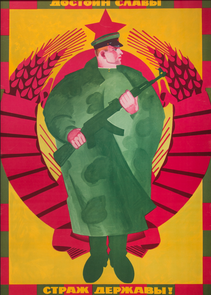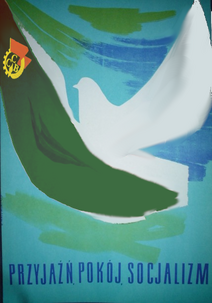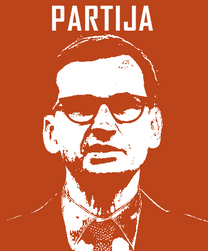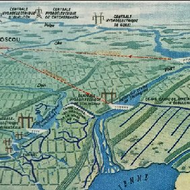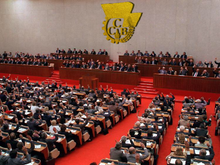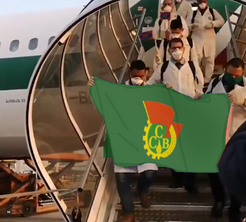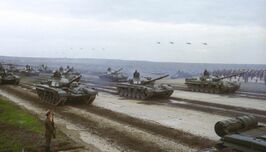Welkija: Difference between revisions
| Line 50: | Line 50: | ||
In the mid 5th century once existed a land which marked the first Welkijan state, with Welk being its first and last leader. Welk travelled from the west as a merchant and aided the local Yasic tribes in a revolt against there chieftains, winning a series of victories and being regarded as a hero amongst the local people. Welk was elected by the tribal councils as the "High Vozhd" and he proceeded to create his personal realm known as 'Welk's Empire. He ensured no one tribe could have the power to overpower another leading to a wide confederation. His legacy remained after his death and the collapse of his empire with the Yasic tribes living in the region came to be known collectively as "Welkijans' who's etymological roots can be found to trace back to "Sons of Welk". Some etymologists disagree and suggest that "Welkijans" could also be traced back to mean "Great People" due to Welks semi-mythical status.<ref>The first records of Welk or his Empire appeared in the 17th century, some historians posit that King Vladislav manufactured Welk as a way to legitimize his reign.</ref> | In the mid 5th century once existed a land which marked the first Welkijan state, with Welk being its first and last leader. Welk travelled from the west as a merchant and aided the local Yasic tribes in a revolt against there chieftains, winning a series of victories and being regarded as a hero amongst the local people. Welk was elected by the tribal councils as the "High Vozhd" and he proceeded to create his personal realm known as 'Welk's Empire. He ensured no one tribe could have the power to overpower another leading to a wide confederation. His legacy remained after his death and the collapse of his empire with the Yasic tribes living in the region came to be known collectively as "Welkijans' who's etymological roots can be found to trace back to "Sons of Welk". Some etymologists disagree and suggest that "Welkijans" could also be traced back to mean "Great People" due to Welks semi-mythical status.<ref>The first records of Welk or his Empire appeared in the 17th century, some historians posit that King Vladislav manufactured Welk as a way to legitimize his reign.</ref> | ||
Following | Following Welk's death his empire was divided to each of his sons, who later administered there own realms until the Ahranian conquests and incorporation into the Ahranian Empire.The biggest of these is believed to have been the tribe of Samo which has founded the settlement of Velaki, now known as Volkovsk | ||
== Grand Duchy of Velaki (1545-1654) == | == Grand Duchy of Velaki (1545-1654) == | ||
Revision as of 19:16, 30 December 2024
Socialist Commonwealth of Welkija Cоциалистичного Содружство Велкиыи | |
|---|---|
| Motto: United In Friendship And Labour | |
| Anthem: "Friends" | |
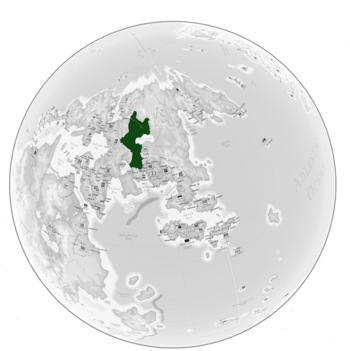 | |
| Political Capital | Nowa Huta |
| Largest city | Volkovsk |
| Official languages | Miedzywielskiji (Welk) |
| Common languages |
|
| Demonym(s) | Welk |
| Government | Socialist Commonwealth |
• Prime Minister | Mieczysław Mijal |
| Legislature | Peoples Assembly |
| Establishment | |
• The Popular Revolution | 1915 |
• Declaration Of The Socialist Commonwealth | 1916 |
| Area | |
• Total | 650,602 km2 (251,199 sq mi)Approximate |
| Population | |
• 2018 census | 14,263,654 |
• Density | 21.5/km2 (55.7/sq mi) |
| GDP (PPP) | 2024 estimate |
• Total | $201.49 Billion |
• Per capita | $14,126 |
| Gini | low |
| HDI (2024) | very high |
| Currency | Wielkijan zlaty (WMK) |
| Driving side | right |
Welkija (Велкия) also known as the Socialist Commonwealth of Welkija (Cоциалистичного Содружство Велкиыи) is a Yasic nation located in Argis, spanning from the Intrian sea all the way up to the northern tundra's. Its a sparsely populated nation of 14 million, largely located in the southern and central regions of the country with Nowa Huta, built around the nations largest steel mills functions as its political and industrial capital. With Volkovsk, the countries second largest city, functioning as its cultural capital.
Welkija emerged as a political entity in 1545 following the collapse of the Ahranian empire as the Duchy of Velaki, the subsequent years are referred to as the 'Smuta' in which the Grand Duchy invaded and politically annexed other neighboring breakaway neighbor states, officially declaring itself the kingdom of Welk in 1654. In 1670 it began its northern expansion, coming to control the west coast of the Amber sea and the northern tundra's, by 1750 it held all the territories which constitute the modern state of Welkija. The Kingdom of Welk ceased to exist in the year 1915 following the Popular Revolution in which the Commonwealth was declared. Ruled by a defacto one party state under the United Workers Party, who's rule saw to the industrialization and urbanization of much of the country, however due to political infighting many proposed reforms failed leading to extreme stagnation through the 90's and a rise of opposition groups within Welkija, by 2020 external and internal pressure forced the United Workers Party to hold its first free elections, in which it lost its majority of seats while remaining the largest party within parliament, forming a hung parliament which has failed to pass the most basic of legislation in modern years.
Despite Welkija being a multi-ethnic commonwealth spanning dozens of cultures and ethnic groups, the country speaks one unified language, Miedzywielskiji, being a artificial language constructed in 1927 with the purpose of helping unify the country due to its decentralized nature. Originally only being mandated in government use, it soon spread and began being taught at schools. The 1928 Census suggests that over 178 languages were used in the country, in modern years this figure has dropped drastically as Miedzywielskiji has become the common language across most the country due to increasing urbanization and the rise of the internet.
Welk and his Empire (427-498)
In the mid 5th century once existed a land which marked the first Welkijan state, with Welk being its first and last leader. Welk travelled from the west as a merchant and aided the local Yasic tribes in a revolt against there chieftains, winning a series of victories and being regarded as a hero amongst the local people. Welk was elected by the tribal councils as the "High Vozhd" and he proceeded to create his personal realm known as 'Welk's Empire. He ensured no one tribe could have the power to overpower another leading to a wide confederation. His legacy remained after his death and the collapse of his empire with the Yasic tribes living in the region came to be known collectively as "Welkijans' who's etymological roots can be found to trace back to "Sons of Welk". Some etymologists disagree and suggest that "Welkijans" could also be traced back to mean "Great People" due to Welks semi-mythical status.[1]
Following Welk's death his empire was divided to each of his sons, who later administered there own realms until the Ahranian conquests and incorporation into the Ahranian Empire.The biggest of these is believed to have been the tribe of Samo which has founded the settlement of Velaki, now known as Volkovsk
Grand Duchy of Velaki (1545-1654)
Following the collapse of the Ahranian empire in 1545, the duchy of Velaki, located around the city of Volkovsk got its defacto independence alongside various other constituencies. Due to the collapse of supply lines, bad harvests, and general backwardness without access to the resources of the empire, this period is commonly referred to as the 'Smuta' in Welkija. 'Smuta' cannot be translated directly however it can be defined as a period in which old authorities are no longer in power but have not been properly replaced, a period in which chaos and lack of order is commonplace. The Duchy of Velaki, through diplomatic marriage and warfare managed to unify the eastern Ahranian breakaway states by 1654, bringing a official end to the Smuta.
Kingdom of Welk (1654-1915)
Kind Vladislav 'Of Welk' declared the kingdom of Welk after uniting the Yasic breakaway states. Claiming lineage from the semi-mythical 'Welk' himself
His Son Vladislav II would further expand the Kingdom eastward by establishing Rinava as a tributary of the Kingdom via the marriage of Kazimir Czarka, brother of Vladislav II, into the royal family of Rinava, creating a Welk cadet branch. This relationship lasted until the revolution of 1826 in Rinava, which marked the beginning of the decline for the Kingdom of Welk and the independence of Rinava.
Commonwealth of Welkija (1915-16)
The Commonwealth was established during the Popular revolution in October of 1915, following the victory of the republican coalition the interim government declared that the country will hold its first democratic elections.
The short lived Democratic commonwealth came to a crashing collapse following the victory of the 'United Left' (Cједињена лєвица SL) The coalitions was dominated by the Socialist Party of Welkia (Sоциалистична партија Велкия SPW) which utilized its influence to leverage its subordinate members into 'merging', with these mergers favoring the Socialist Party. The party which came about as a result of this became a amalgamation of broad left wing theories and beliefs leading to the party holding many inherently contradictory positions at once which formed the 'Party line'. The new 'United Workers Party' (Cједињена партија работница SPR)
Socialist Commonwealth Of Welkija (1916 Onwards)
First government of the 'United Workers Party' (1916-1949)
The bill which brought about the end of the Commonwealth was the 'Act of national unity' which stipulated ever party which ran for election required to sign a agreement which required them to not campaign or oppose any bill which passed through parliament in order to maintain "Democratic Centralism". This stripped any opposition party of any agency to oppose government decisions. Only a minority of opposition parties chose to work within the system, with them usually being regarded by the public as 'controlled opposition' or 'communist collaborators'.
Government of Generalissimus Konev (1949-1954)
Following the outbreak of the first Argic war Marshall Konrad Konev, alongside a clique formed within the Military high command organized a putsch against the Peoples Assembly and formed the "Military Council of State" which superseded the Peoples Assembly. While never formally disbanding the assembly the Military council ruled with impunity by decree under Konev, who was bestowed with the title of "Generalissimus" however proffered to be referred to as 'Comrade Marshall'. He was often referred to as the "Kind Chief" during his rule. His rule saw to the start of the 'Konevina' a series of political and military purges within the United Workers Party and the Peoples Army. His rule also saw a expansion of the welfare state, such as introducing two years of maternal leave, able to be split with the father, the massive construction of state housing as well as providing Welk with a allotted Dacha [summer house] or plot of land for the construction of one. He stepped down at the end of the Argic war and restored the position of the Peoples Assembly. He is also considered by some as a patron of arts, with his vocal support for the rising "Welkijan Socialist Artistic movement".
Konev remains a controversial figure amongst Welks, either regarded as the savior of Welkija who stepped down when he was no longer required, or a opportunistic dictator and tyrant.
While Konev did not support the creation of a cult of personality around himself as can be seen in how he'd often edit himself out of speeches in place praising other members of the government. Equally, he has not done anything to stop the cult of personality developing around himself, famously rubberstamping a proposal to rename Volkovsk to Konevstapol, his home city, as well as allowing for political parades to carry his portraits and songs to be written in his name.
Subsequent single party Governments (1954-2022)
De-konevization was perused immediately by the next government, which swiftly stepped in to try and remove the cult of the marshal, As part of Dekonevization he was posthumously stripped of his membership of the United Workers Party however this motion was revoked on 20/12/24
Future governments suffered from high degrees of 'cliquism' with party members undermining each others positions and party initiatives. Economic planning remained largely inefficient through most this period due to government having the ability to change plans/halt projects halfway through leading to many abandoned projects through Welkija. Collectivization was attempted multiple times and after each failed attempt its interpretation of collectivization was not undone, leading to various different forms of 'collective farms' operating simultaneously, some under government jurisdiction and working according to the plan, while others operate as private co-operative enterprise owned by those that work on it. The system is confusing and unintuitive, and often times through collectivization, individual agricultural enterprise were offered differing terms from each other leading to a non-standard collectivization.
Economic Planning
The economy of Welkija is centrally planned with regular planning intervals of 6 years, the first plan being in 1920. Welkija is currently undergoing its 17th 6 year plan with limited success.
Free Elections and Democratization
Opposition to one party rule reached a peak in 2023 in which the government, as a result of foreign and internal pressure, was forced into allowing the first democratic elections. The opposition remained disunited and thus none of the parties within it managed to acquire the necessary seats to secure a majority within parliament, leading to the SPR continuing its undisturbed governance. Lacking the seats for a majority in the peoples assembly it is unable to without the consent of the opposition, leading to a tense situation within the legislature.
Following the beginning of Insurgent activity in the south of the country, the government created a "Front of national unity" with the social democrts, liberal democrats and minor left wing independents in order to ensure stability during the crisis.
Transformation of Nature
Welkija has a long standing tradition stemming back to 1700s of attempting to bend nature into its will, having a specific word for this 'Prizelenišče' (Призеленище) literally meaning, "To make green". This desire in controlling nature is one which is within the very culture and soul of the Welks as they continuously attempted to "turn the northern tundra's green" Most of these projects, due to lack of scientific backing, have as expectedly produced little to no result, such as utilizing arrays of magnifying glasses in 1734 in order to "heat up the climate". This however have not slowed down the Welks with attempts at mega projects never ceasing.
The Socialist government continued this trend, drafting up multiple different plans to attempt to control the northern climate and change it to its needs however most have not been acted upon or were started and then subsequently cancelled not long after work has begun. Critics argue that a majority of these projects were based in pseudoscience and reliant on external factors being extremely favorable. However certain projects have found mild success such as the 'virgin lands campaign' which sought to cultivate corn and wheat in the northern regions, focusing around low laying ground areas and directing irrigation projects into them and the use of windbreaker trees, however these attempts were unstainable due to salinization and soil degradation, leading to little improvement to the overall agricultural output of the state.
Culture
Literature
Classic Welkijan works often depict the nations tumultuous past as well as its struggles, while modern literature tends to explore themes of identity and revolution. The Welkijan literary style has been described as a blend of "Socialist Realism" and tragedy.
Music
Traditional Welkijan music incorporates instruments such as the Balalaika, Gusli and most prominently accordion, the most popular genre of music in Welkija is "Disco-Welk" characterized by upbeat electronic sounds, simple lyrics and a "strong rural feel", often compromising much of new years party playlists as well as wedding dance music.
Festivals and holidays
Welkija possesses one of the highest number of mandatory days off in Argis commemorating events in its history, including the beginning of the revolution, the declaration of the Socialist Commonwealth, the declaration of the Kingdom, the first of may workers day parade. Many Welks also celebrate ancient festivals such as 'Kupala night' which celebrates the summer solstice, traditionally celebrated on the shortest night of the year.
Cuisine
The cuisine of Welkija largely compromises of root vegetables such as beet, potatoes and cabbage, with sour cream being a conventional topping for most foods. Welks are renowned for there love of Paprika. The Welks have a seasonal diet with little to no tropical foods imported out of season due to costs, leading to fruit such as oranges being treated as delicacies during the winter months. Despite this lack of variety, most Welks have high calory intakes due to the subsidization of food prices by the government.
Some popular dishes include:
- Borscht
- Barszcz Zurek
- Potato Pierogi
- Goulash
- Chili con-carnae
Social Values
Most Welks have a degree of communal spirit instilled within them and the desire to work alongside others, they do not wince at the prospects of sharing accommodation while at university, or communal eating spaces within housing blocs, for them its a reality of life. Welks also tend to have a strong focus on education, with government paid tuition and government provided accommodation, a large percentage of Welks are university educated, with a focus on science, technology as well as medicine, while humanities subjects are still valued, with most party members coming from humanities backgrounds.
Government and politics
Welkija, unlike most states, possesses only one legislature, the Peoples Assembly (Рада Лудова), being the sole and supreme body within the state, with the largest party elected being able to appoint a prime minister. This, while historically not causing issues due to the single party nature of the state, with recent democratization and return to multi-party democracy has been stifling to the commonwealth, as a hung parliament effectively means the governments at a a standstill when it comes to passing new laws. The country has been ruled by Mieczysław Mijal since 2014, often regarded as a authoritarian, however under his rule a degree of liberalization has came to Welkija such as the aforementioned return to multi-party democracy. Most opposition parties refuse to work alongside the United Workers Party, however the Party of Social Democracy (PSD) has in the past voted in favor with the United Workers party, giving them enough votes inside the Peoples Assembly to pass certain bills.
Foreign Relations
Welkija attempts to keep peaceful relations with its neighbors with its policy of "Peaceful co-existence" however it often faces critiques of "human rights abuses" and stifling democracy leading to tensions between itself and democratic states. The Commonwealth maintains a strong commitment to Socialist internationalism and believes in the necessity to grow a socialist international.
Florentia
As part of Welkijas campaign in constructing a socialist international it has perused closer relations with the Monarcho-Socialist state of Florentia, sending a corp of doctors, specialists and administrators in helping the nation along its three year plan by aiding it in developing its healthcare sector as a form of humanitarian support. The project is ongoing with plans for extension past Florentias three year plan if relations with Florentia continue to develop fruitfully
Military
The Commonwealth follows the doctrine of 'deep operation' (Глубокая операция) which puts a focus on the 'operational' level of warfare. It contains two main phases, 'Tactical battle' and the 'Exploitation of tactical success'. Its tanks tend to be smaller in stature to its adversaries yet they possess great maneuverability in order to capitalize of its military strategy. Critics consider its military to be outdated and bloated yet Welk military theorists consider themself to have a vast and maneuverable army capable of rapid deployment and operations. It focuses on combined arms at every level of warfare, tactical, operational and strategic, with a major focus on air to ground support utilizing helicopters as opposed to more traditional strike based aircraft, due to its "better ability to co-ordinate with ground forces during an advance".
Economy
Welkija economy is largely based around the extraction and refinement of natural resources. Being a nation plentiful in coal and iron deposits. With major deposits of Nickel and copper in the north, Lead Zinc and silver in the center, and Bauxite in the south.
The nation also has a sizeable heavy industry sector, specializing in steel working and manufacturing construction materials. However the country has a lack of light industry, leading to shortages of consumer goods and high prices which are counteracted by government subsidization of these goods leading to high government expenditure.
Geography and biodiversity
Welkija major population centers are located amongst rivers, valleys and the 'Great' Amber Lake, with the north of the country being largely frozen tundra's and unsittable for farming. The far south and deep north also have wide ranging peat bogs located around them leading to troubles in developing the regions.
The highest point in Welkija is located in Gorkygorks, a major coal mining settlement which developed into a major mountain town and common tourist destination due to its hosting the yearly national skiing competition. Its also where the Welk Black Falcon and the Great Welkijan Black Eagle are native too.
The Amber Lake hosts one of the largest deposits of Amber in Argis as well as a high amount of biodiversity leading to multiple species of fish and even dolphin calling it home. Local Welkijan legends suggest at the existence of the mythical 'Green Dolphin' which resides in the lake leading to yearly pilgrimages by Cryptozoologists to the area.
Welkija also possesses sizable populations of Deer, Bear, Beaver and Badger.
Flag
Series of flags of Welkija
- ↑ The first records of Welk or his Empire appeared in the 17th century, some historians posit that King Vladislav manufactured Welk as a way to legitimize his reign.


